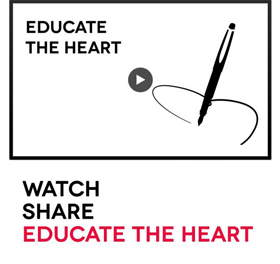The importance of being educated

Day one of the Vancouver Peace Summit 2009 attracted a diverse group of people who listened to the Dalai Lama and other Nobel Peace Laureates share their opinions on technology, compassion, women's rights and education.
Education is crucial to understanding the world and the people who live in it. These panel discussions try to shed some light to what core issues prevent the world from abolishing wars, slavery, hatred and misinformation.
"This is why education is very important," the Dalai Lama said.
But how do we breakdown education? If most are well-educated, especially politicians, then why is there still war? Canada is built on a public school system, but why is there still discrimination? Education can also be expensive, daunting and for some around the world, out of reach.
One UBC professor is trying to figure out just where the development of empathy, compassion and helpfulness in children goes wrong.
Clyde Hertzma n, UBC human early learning development director (right), is in the process of mapping what the socio-emotional impact of kindergarten kids' environment has on their early stages of learning.
n, UBC human early learning development director (right), is in the process of mapping what the socio-emotional impact of kindergarten kids' environment has on their early stages of learning.
His group utilizes the tool Early Development Instrument (EDI), which are questionnaires that group children's scores not individually, but by postal code.
"These data show huge variability in the proportion of vulnerable children by neighbourhood across B.C.," Hertzman said in an email interview. " In some neighbourhoods, less than five per cent of the children are vulnerable on the social or emotional scales of the EDI. At the other end of the spectrum, 25-30 per cent of children may be vulnerable on these scales. To a certain extent, this follows socioeconomic differences among neighbourhoods...it is related to the quality of nurturance and participation that young children experience in the environments where they grow up, live and are taken care of up until kindergarten age."
Hertzman is attempting to prove that a child's environment is a key factor in whether or not they are able to interact with others peacefully. The questionnaire's are filled out by teachers in February and he has monitored every neighbourhood three times in the past nine years.
"How we go about 'educating the human heart' must build upon the fact that social and emotional development, which powerfully influence our capacity for empathy, begin at the beginning of life, long before children reach school age," he said. "Thus creating early environments that support social and emotional development is a pre-requisite for educating the human heart."
While one professor is mapping early childhood development, another is bringing it into the classroom.
Linda Farr Darling, UBC department of curriculum and pedagogy associate professor, says that children are always trying to make sense of the world around them and have a fresh curiosity of peace and conflict based on their personal experiences with family and their exposure to the media.
"I think one challenge is how to work effectively with those natural curiosities children have about people and other beings, to lead them to develop and refine their understandings of what might make a more peaceful school, for example, or a more peaceful community, to begin to sort out concepts related to peace, and connect it to historical and present-day struggles," Darling said. "I have worked with many teachers of young children who find the best kind of teaching is constructed carefully from their students' sense of wonder about life."
Trying to communicate with children on their level and interest them in the topic can be challenging, but drawing on historical figures such as Gandhi and ordinary people coping with strife helps, she said.
"There is amazing children's literature from all over the world to support explorations of peace, looking at everything from peace as a state of mind, to peace as the successful resolution of conflict within and across communities and societies," she said.
The value placed on teaching children to bring what they learn from the classroom home and in their communities is a start. What is important is the inclusion of all ages and races of people and educate them on the practicality of respect and peace.
- by Stefania Seccia





Comments
Post new comment